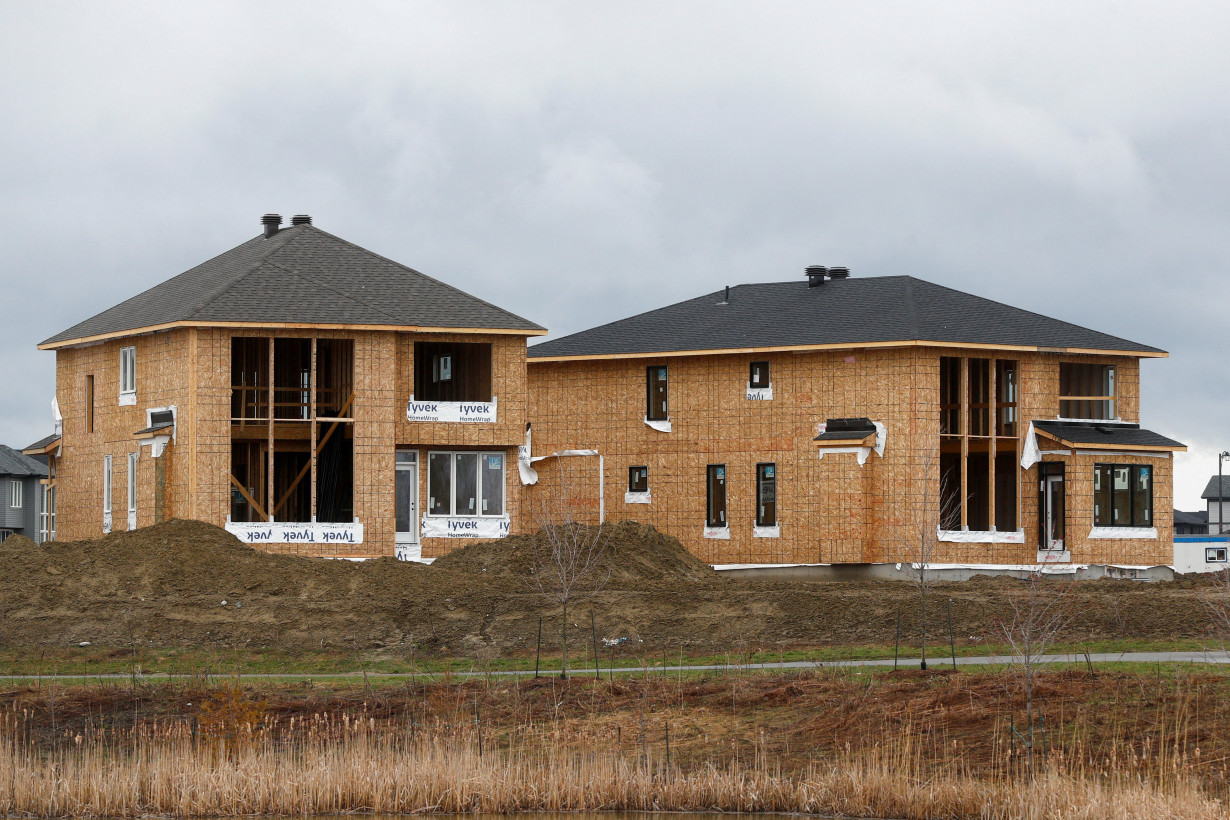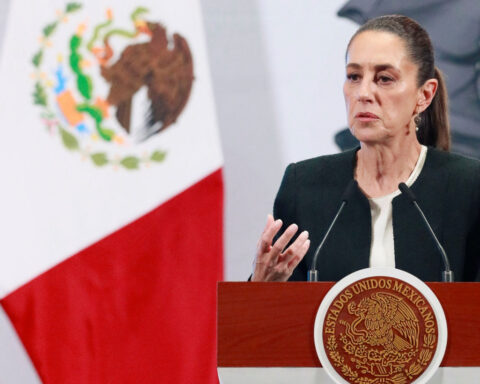By Mumal Rathore and Indradip Ghosh
BENGALURU (Reuters) - Canadian home prices are set to lag overall inflation this year, a Reuters poll of property market experts showed, with transaction volumes already down sharply as a U.S.-led trade war escalates and risks serious damage to the economy.
U.S. President Donald Trump's flip-flopping tariff policies - from already-imposed steel and aluminium tariffs to new auto tariffs - pose a threat to an already-weakening Canadian economy heavily dependent on exports to the U.S.
Canadian Prime Minister Mark Carney said on Thursday he would respond with trade actions next week, when the auto tariffs and a separate set of reciprocal tariffs on U.S. trading partners are due to take effect.
Rising economic uncertainties are already taking a toll, with home sales dropping by the most in nearly three years in February despite a cumulative 225 basis points of Bank of Canada rate cuts over the last nine months.
"People are worried, and when people are worried, they're not going to go out and buy a new house and take on a half or one million dollar mortgage. That's a big commitment, if you're not sure you're going to have a job in the few months' time," said Kari Norman, economist at Desjardins.
Average home prices, down about 16% from a pandemic peak, were expected to rise 2.0% this year, according to the March 14-27 Reuters poll of 13 housing market experts.
That is half the modest 4.0% rise predicted for this year in a December poll and a bit lower than 2.1% forecast for overall consumer price inflation in 2025 in a separate Reuters survey.
Average home prices were forecast to climb 3.4% and 3.2% in 2026 and 2027, respectively.
After cutting its key interest rate for the seventh consecutive time earlier this month, taking it to 2.75%, the BoC warned rising trade tensions and tariffs imposed by the U.S. would likely slow economic activity and increase inflationary pressure.
Similar worries led many contributors, who were previously mildly optimistic about rising home prices after muted gains last year, to downgrade their 2025 price predictions by an average of over 4 percentage points.
Forecasts ranged from a 3.2% fall to a 4.7% rise, more varied compared with the December poll.
"We're now tracking a double-digit quarterly decline in Canadian home sales and a mid-single digit drop in Canadian average home prices...This much softer starting point has led us to materially mark down our 2025 annual average growth forecasts," noted Rishi Sondhi, economist at TD Economics.
"These outcomes are much weaker than our pre-Trump inauguration forecast made in December, where we assumed that a loosening in federal mortgage rules, lower interest rates and continued economic growth would fuel a modest Q1 gain in sales and prices."
Home prices in Toronto will fall 0.3% and remain largely flat in Vancouver this year, the survey predicted, down sharply from 3.9% and 3.5% rises, respectively, predicted in the December poll.
(Other stories from the Q1 global Reuters housing poll)
(Reporting by Mumal Rathore; polling by Indradip Ghosh and Reshma Ann Samuel; Editing by Ross Finley, William Maclean)

 Trump has begun another trade war. Here's a timeline of how we got here
Trump has begun another trade war. Here's a timeline of how we got here
 Canada's leader laments lost friendship with US in town that sheltered stranded Americans after 9/11
Canada's leader laments lost friendship with US in town that sheltered stranded Americans after 9/11
 Chinese EV giant BYD's fourth-quarter profit leaps 73%
Chinese EV giant BYD's fourth-quarter profit leaps 73%
 You're an American in another land? Prepare to talk about the why and how of Trump 2.0
You're an American in another land? Prepare to talk about the why and how of Trump 2.0
 Chalk talk: Star power, top teams and No. 5 seeds headline the women's March Madness Sweet 16
Chalk talk: Star power, top teams and No. 5 seeds headline the women's March Madness Sweet 16
 Purdue returns to Sweet 16 with 76-62 win over McNeese in March Madness
Purdue returns to Sweet 16 with 76-62 win over McNeese in March Madness








